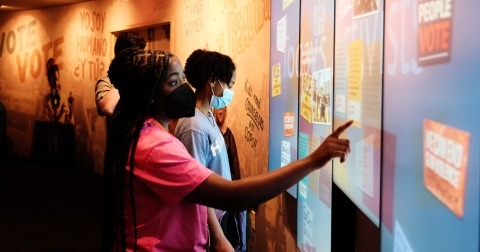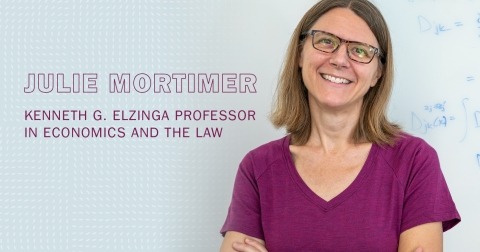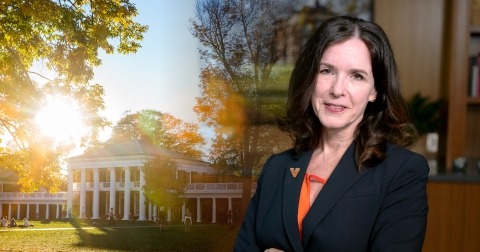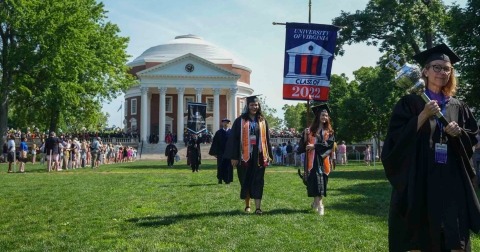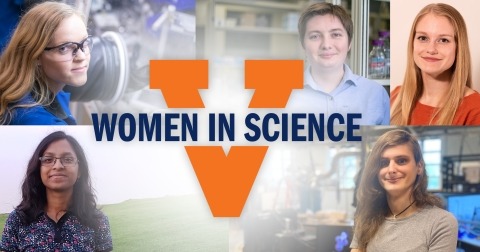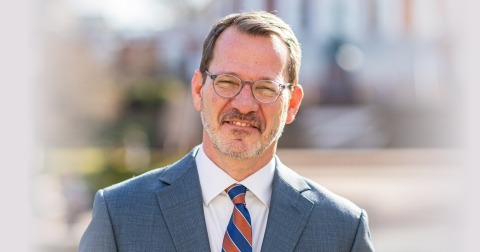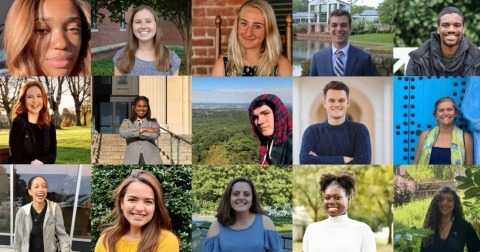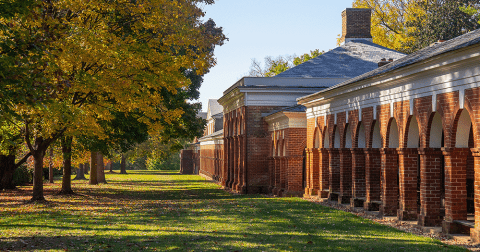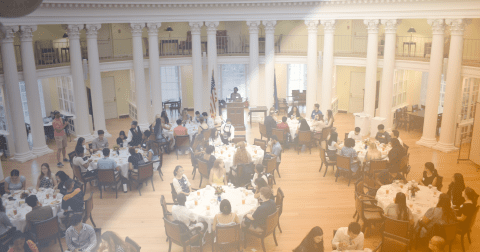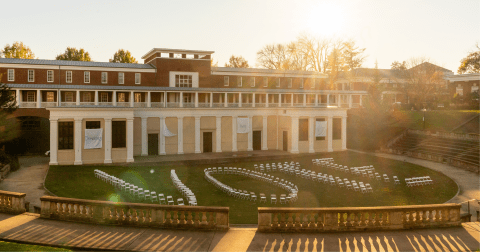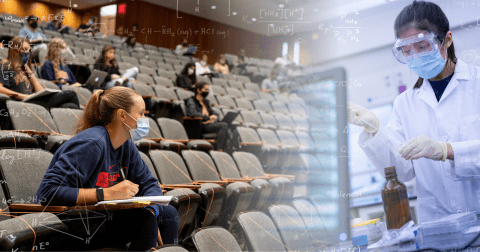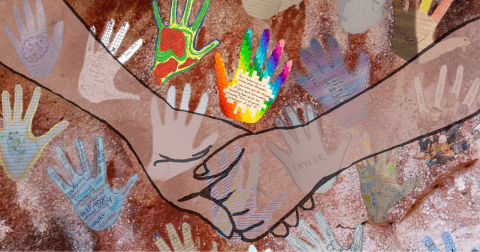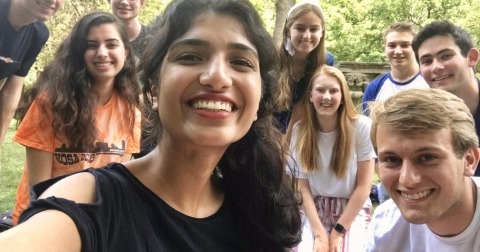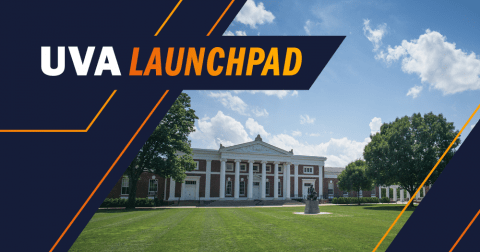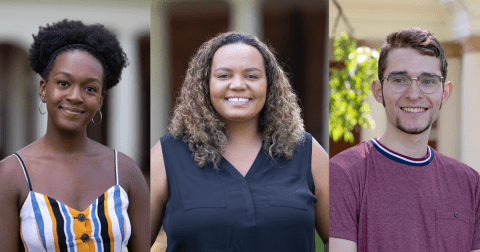Through endowed professorships, Arts & Sciences welcomes top academics
More than 25 new faculty members joined the College and Graduate School of Arts & Sciences this academic year. They are part of an ambitious campaign to bring more than 200 new faculty members to the College by the year 2020 as a generation of esteemed professors begins to retire in increasing numbers. Several of those new faculty members are national leaders in their fields, and were recruited to the University with endowed professorships.
“Endowed professorships play a key role in supporting the top initiatives of the College and Graduate School of Arts & Sciences. They allow us to recruit, retain, and competitively compensate the world’s leading faculty to teach our students, conduct field-changing research, and build ‘top ten’ programs in key departments and cross-disciplinary fields,” said Buckner W. Clay Dean of Arts & Sciences Ian Baucom. “Our longstanding reputation for excellence in undergraduate education and graduate study is based on exceptional teaching and research, and we know that preserving this is largely a function of investing in faculty.”
Here is a look at three new endowed professors in the College and Graduate School of Arts & Sciences: a prominent macroeconomist, a leading Civil War scholar, and the first Julian Bond Professor of Civil Rights and Social Justice.
Eric M. Leeper
Star Economics Professor Brings Real-World Policy to Classrooms
by Lorenzo Perez
 Throughout his career, macroeconomist Eric M. Leeper, who joined the Arts & Sciences faculty last August as the Paul Goodloe McIntire Professor in Economics, has bridged two worlds. He is equally comfortable pushing the academic boundaries of the theoretical and empirical models of macroeconomic policy as a scholar and working with real-world policy makers as a formal advisor to Sweden’s central bank, as a member of the Research Council of Germany’s Bundesbank, and as an informal advisor to other government banking institutions.
Throughout his career, macroeconomist Eric M. Leeper, who joined the Arts & Sciences faculty last August as the Paul Goodloe McIntire Professor in Economics, has bridged two worlds. He is equally comfortable pushing the academic boundaries of the theoretical and empirical models of macroeconomic policy as a scholar and working with real-world policy makers as a formal advisor to Sweden’s central bank, as a member of the Research Council of Germany’s Bundesbank, and as an informal advisor to other government banking institutions.
“I’ve always felt that there’s a need for people who are at the frontier of research to have their research informed by practical questions,” said Leeper, who came to UVA after 23 years at Indiana University and eight years working in the Federal Reserve System. “Part of the reason I really enjoyed working in the Fed system, and part of the reason I like advising central banks is you get thrown questions that you’ve never thought about before. You have to start from the beginning and figure out how to think about something. I think that’s really what economics is.”
Leeper’s work on a new economic mechanism, called the “fiscal theory of the price level” and first presented in a 1991 paper, challenged traditional macroeconomic theory by introducing the idea that taxes, government expenditures and other fiscal policy can influence economics activity and inflation.
John Pepper, chair of the Department of Economics, said that Leeper’s work on fiscal policy has transformed the way that macroeconomists view the role of fiscal policy and how it interacts with monetary policy. “It’s fair to say that he is a transformational hire for this department,” Pepper said. “He is among the most influential macroeconomists of his generation.”
Leeper, who received his doctorate in economics from the University of Minnesota, said he was eager to come to the University of Virginia because of its serious commitment to economics. “I got that message from the dean, from the provost, and from the department as well,” Leeper said. “The bottom-line is, if you look at the top-ranked universities, they all have top-ranked economics departments.”
In addition to teaching and serving as a research associate at the National Bureau of Economic Research, Leeper will serve as director of UVA’s new Virginia Center for Economic Policy. Seed funding has been provided to launch the new center, which will serve two purposes, according to Leeper: to create an environment for academics and policy makers to get together and better understand each other, and to provide more mentoring opportunities for junior faculty, grad students, and undergraduates.
The mentoring opportunities could take the form of hosting public policy advisors as visiting lecturers for different lengths of time.
“For undergraduate students, I think that would help them understand what life beyond UVA might look like. For graduate students, it forces them to learn how to communicate with people who aren’t their advisers, and that’s crucial for when they’re in the job market,” Leeper said. “It gives them exposure to new ideas and things they haven’t seen here. And for junior faculty it provides connections within the profession that end up helping them down the road.”
Caroline E. Janney
Renowned Civil War Scholar “Comes Home” to Direct Nau Center
by Molly Minturn
 In August, Caroline E. Janney joined the University as the John L. Nau III Professor of the American Civil War in the Corcoran Department of History and new director of the John L. Nau III Center for Civil War History.
In August, Caroline E. Janney joined the University as the John L. Nau III Professor of the American Civil War in the Corcoran Department of History and new director of the John L. Nau III Center for Civil War History.
Janney, who was previously a professor of history at Purdue University, earned her master’s degree and doctorate in history and bachelor’s degree in politics from UVA. “I’m a triple-Hoo and I’m from the Shenandoah Valley,” she said. “I’m glad to be home.”
Janney’s scholarship focuses on the Civil War with an emphasis on memory, gender, and race.
“We are delighted to have Caroline E. Janney coming back to the University of Virginia to hold the Nau Chair in history and assume the directorship of the Nau Center,” said outgoing Nau Center director Gary W. Gallagher and associate director Elizabeth R. Varon. “Her outstanding scholarship on the war’s memory and sterling record as a teacher will yield superb dividends for her students, her colleagues, and the larger constituency of people, both academic and nonacademic, interested in mid-19th-century United States history.”
Gallagher, a professor emeritus of history who held the John L. Nau III Professorship in the History of the American Civil War before Janney, served as Janney’s advisor when she was a doctoral student. The two co-edited Cold Harbor to the Crater: The End of the Overland Campaign (University of North Carolina Press, 2015), part of a series on Civil War military campaigns.
Janney’s other books include Burying the Dead but Not the Past: Ladies’ Memorial Associations and the Lost Cause (University of North Carolina Press, 2008); Petersburg to Appomattox: The End of the War in Virginia (University of North Carolina Press, 2018); and Remembering the Civil War: Reunion and the Limits of Reconciliation (University of North Carolina Press, 2013). She also serves as a co-editor of the University of North Carolina Press’s Civil War America Series and is a past president of the Society of Civil War Historians.
This year, Janney is teaching graduate and undergraduate courses on the Civil War and 19th-century United States. As director of the Nau Center, which is now in its fourth year, she is hosting speakers on Civil War-era topics, overseeing undergraduate internships at historic sites, and engaging in conversations with faculty, students, and alumni about the ways in the which the Civil War still permeates our society.
“The appointment of Professor Janney underscores the University of Virginia’s commitment to the field of Civil War-era studies—and promises to enhance the reach and effectiveness of a range of successful programs,” said Gallagher and Varon.
On March 29, the Nau Center will host its annual signature conference, with the theme “Theaters of War,” in UVA’s Small Special Collections Library. It will examine the Civil War’s eastern, western, and trans-Mississippi theaters, and feature six speakers, including Professor Gallagher.
Janney is especially focused on expanding the center’s undergraduate internship program at national parks, which she says opens doors for students, not just for careers in the National Park Service but in federal government positions. She is also interested in raising funding for research fellowships for graduate students and faculty from other universities.
“Our goal is to become the premier Civil War center in the nation,” she said. “We want to make the Nau Center the place where undergraduates get hands-on experience in the field, where graduate students find a community and support, and where scholars from other universities have an opportunity to present their work and conduct research. Our collections and faculty certainly bear that out.”
Kevin Gaines
Historian Kevin Gaines Is UVA’s First Julian Bond Professor
by Anne Bromley
 On a bright autumn afternoon in Cleveland more than 50 years ago, 6-year-old Kevin Gaines waited for a rally at his neighborhood playground to see a visitor he already knew was important: a minister named Martin Luther King Jr.
On a bright autumn afternoon in Cleveland more than 50 years ago, 6-year-old Kevin Gaines waited for a rally at his neighborhood playground to see a visitor he already knew was important: a minister named Martin Luther King Jr.
Alas, hearing the civil rights icon was not to happen that day for Gaines. King’s arrival was delayed so long that at sunset, the boy decided to head home and not be late for dinner.
Today, Gaines describes himself as a product of the civil rights era. Even when very young, it was hard not to be affected, he said.
Gaines became a professor of African-American history. And now, after several posts at other prestigious universities, he has arrived at the University of Virginia as the inaugural Julian Bond Professor of Civil Rights and Social Justice.
“It’s a great honor to be the inaugural holder of the Julian Bond Professorship. It’s a really exciting time to be at UVA, when the institution is redoubling efforts to strengthen Africana studies,” he said from his office in Nau Hall.
Gaines came to UVA from Cornell University and holds appointments in the Carter G. Woodson Institute of African-American and African Studies and the Corcoran Department of History. He previously taught at Princeton University; the University of Texas, Austin; and the University of Michigan.
Julian Bond, a longtime social justice activist and one of the co-founders of the Student Nonviolent Coordinating Committee, taught in UVA’s history department for 20 years. After joining the faculty in 1992, Bond taught more than 5,000 students who took his popular History of the Civil Rights Movement seminar.
Recognizing Julian Bond’s impact, the College and Graduate School of Arts & Sciences established the Julian Bond Professorship of Civil Rights and Social Justice after Bond’s death in 2016, with contributions from as many as 350 alumni, parents, and friends.
“Kevin Gaines’ appointment adds multiple dimensions to our department’s curricular offerings, particularly courses focused on the modern civil rights movement,” said English professor Deborah McDowell, who directs the Woodson Institute. “Our students will benefit greatly from his research, which brings international dimension and texture to considerations of the movement and its position in the centuries-long black freedom struggle.
“As we move to implement our graduate certificate in Africana studies, his courses will be essential. We are very lucky to have him here,” McDowell said.
Gaines’ book, Uplifting the Race: Black Leadership, Politics, and Culture During the Twentieth Century, (University of North Carolina Press, 1996) was awarded the American Studies Association’s John Hope Franklin Book Prize. He also published American Africans in Ghana: Black Expatriates and the Civil Rights Era in 2006.
This semester, he is teaching a large history lecture course on the civil rights movement and an upper-level seminar on African-American political writing after Reconstruction.
“The civil rights movement helped transform the writing of American history, with a new focus on the perspectives of African-Americans during slavery and segregation,” he said. Although some black scholars had begun that discovery before the civil rights movement, now it has become part of the norm, he said, citing the fuller investigation of Thomas Jefferson’s involvement with slavery as an example.
In his research and teaching, Gaines includes the global circulation of African-American narratives of freedom and liberation. “African-Americans have had a global presence, whether as activists or artists,” he said.



